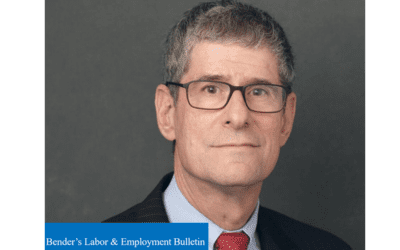Two recent cases looked at monies paid to disability insurance claimants after the onset of disability and analyzed the question of whether the monies constituted income or profit distributions. Although the claimants lost in both Fine v. Sun Life Assur. Co. of Canada, 2015 WL 1534513 (E.D. Va. April 6, 2015) and in Bencivenga v. Unum Life Ins. Co. of Am., 2015 WL 1439697 (E.D. Mich. March 27, 2015), the issue is one that frequently emerges but has yet to be definitively resolved. Fine was the owner of a company prior to the onset of his disability and claimed that post-disability payments represented a distribution of the company’s profits. However, an agreement reached between the former owner and the company delineated the payments as income for ongoing consulting work. In Bencivenga, the claimant was the owner of an insurance brokerage; and the court found that renewal commission payments received by the brokerage constituted earnings.
The leading case finding that post-disability profit distributions cannot be deemed income is D&H Therapy Assoc. LLC v. Boston Mutual Life Ins.Co., 640 F.3d 27 (1st Cir. 2011). However, there are special rules relating to insurance salespeople. Social Security Ruling 71-22 (also see the Program Operations Manual System (POMS) at § RS 01401.160) advises:
Renewal commissions to life insurance agents on life insurance policies are wages when paid if the policy was written when the agent was:
- an employee under the common-law rules (see RS 02101.020); or
- a full-time life insurance salesperson (see RS 02101.355).
The employee status at the time of the original sale determines whether the renewal commissions are wages even if the salesperson has retired or otherwise ended the employment relationship.
With respect to commissions on casualty insurance, the Social Security Program Operation Manual System (POMS) at § RS 02505.170 treats repeat commissions as earned each year – “Each repeat commission is for a policy written for a new and different term.”
Two other cases of note on the issue of earnings versus profits are Unum Life Ins.Co. of America v. Epes, 715 F.Supp.2d 837 (E.D.Ark. 2010) and Sivalingam v. Unum Life Ins.Co. of Amer., 2011 U.S.Dist.LEXIS 45660 (E.D.Pa. April 26, 2011), where courts found that earnings derived from the insured’s management of ancillary businesses could be counted as current monthly earnings rather than passive investment income. However, passive investment returns would not be deemed earnings that could reduce disability payments.






